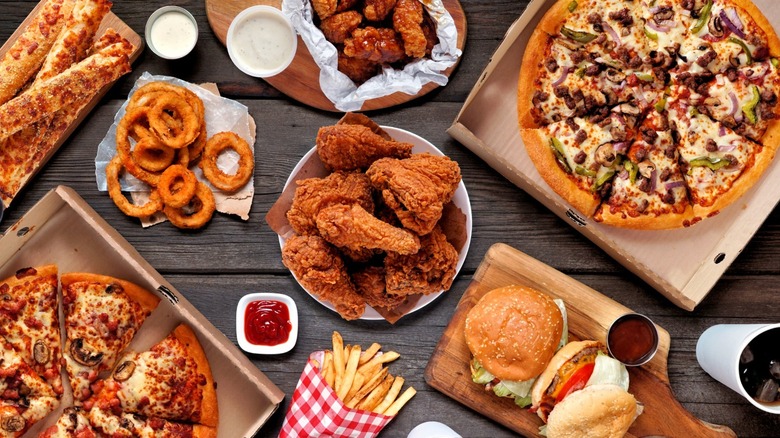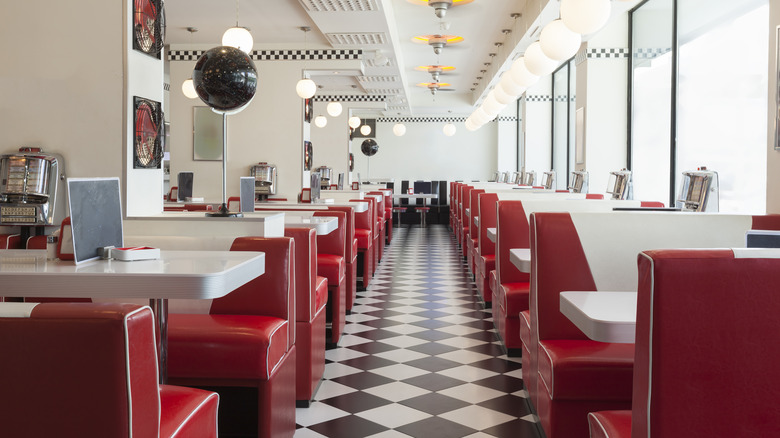California's Controversial Fast Food Law Could Be On Hold Until 2024
California representatives were looking to enact a state-wide food-related law — one that clearly isn't receiving universal support. According to USA Today, the California FAST Act involved the creation of a 10-person council that would oversee all the fast food and casual restaurants throughout the state, giving them the power to make key decisions and raise the minimum wage as high as $22 initially. This idea was conjured up as a way to improve working conditions for those in the fast food industry. Signed by Governor Newsom in September 2022, the FAST Act was meant to take effect this January.
But the law has received strong opposition. Although the FAST Act would only apply to businesses with over 100 locations, the Save Local Restaurants Coalition has argued that it would threaten small businesses run by women, families, and minorities. This coalition, whose members include the National Restaurant Association and the U.S. Chamber of Commerce, has received donations from big brands with deep pockets. Fast Company obtained financial disclosure documents revealing that Save Local Restaurants received big-dollar donations from major restaurant chains. Chick-fil-A gave $1 million to Save Local Restaurants while Subway donated $100,000. Another $7500,000 poured in from In-N-Out Burger and Chipotle.
According to California law, implementation of the law could be delayed until a referendum vote by the public if opponents could gather 623,212 signatures. Save Local restaurants gathered more than 1 million. But the conflict didn't end there.
The law could be delayed until 2024
According to Fast Company, one of the FAST Act's vocal supporters, the Service Employees International Union, not only slammed efforts to put the legislation up for a vote but also accused members of the restaurant industry of lying to potential voters to collect signatures. And QSR reports that California's Department of Industrial Relations refused to stop the law from going forward until the million-plus signatures could be verified. So opponents of the bill sued to prevent the law from taking effect.
Per Nation's Restaurant News, the Sacramento Superior Court ruled in the coalition's favor. Setting a January 25 deadline to verify the petition signatures, the judge decided that the fast food law would have to be put to a referendum vote if the requirements were met. "Today's court decision protects the rights of over one million California voters who demanded their say on this law before bearing its burden," the coalition said in a statement. The vote will likely not take place until 2024 if the signatures are validated.

